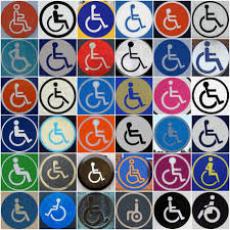Disability Action Plan 2014-2018 includes actions on violence, abuse and neglect
Wed 27 Aug 2014
The Disability Action Plan 2014-2018 has been developed collaboratively by government agencies and representatives from Disabled People’s Organisations ...

The Disability Action Plan 2014-2018 has been developed collaboratively by government agencies and representatives from Disabled People’s Organisations (DPOs).
The plan prioritises actions to advance implementation of the United Nations Convention on the Rights of Persons with Disabilities and the New Zealand Disability Strategy. It emphasises areas that require government agencies to work together and share responsibility for achieving a common result. The plan includes the following measures relevant to violence, abuse and neglect of disabled people:
Ensure personal safety
"This shared result focuses on promoting systems and practices to protect disabled children and adults in all settings. It recognises obligations in the CRPD, particularly Articles 11, 12, 13, 14, 15, 16, 17 and 23.
5. Priority: Reduce barriers to disabled people making decisions to determine their own lives.
a) Ensure disabled people can exercise their legal capacity, including through recognition of supported decision making.
Lead: Office for Disability Issues
6. Priority: Reduce the number of disabled children and adults who are victims of violence, abuse or neglect.
a) Educate disabled people about their rights not to be abused and what abuse is
Lead: DPOs
b) Investigate funding of DPO partnered programmes that support disabled people to speak up for themselves and ensure this is linked with victims of crime work.
Lead: Office for Disability Issues
c) Increase safeguards for disabled people who are socially isolated and develop initiatives to remove what is socially isolating them.
Lead: DPOs
d) Review the current care and support processes for disabled children who are (or are likely to be) subject to care under the Children, Young Persons and Their Families Act 1989 to establish whether they are being treated equitably and fairly, and in their best interests, and if not, to provide advice on changes needed to legislation, operational policy, operational delivery and/or monitoring and enforcement.
Lead: Ministry of Social Development
Deferred until 2015/2016: e) Complete a stocktake of key reports, recommendations and findings on preventing violence, abuse and neglect, including the cultural context for disabled Maori and Pasifika.
Lead: DPOs with the Ministry of Social Development and the Ministry of Health."
The Office for Disability Issues says, "Initial actions have been agreed under each shared result area for implementation over the next year. Some actions are already underway, while new actions should commence from July 2014. Actions will be monitored quarterly and reviewed annually in combined meetings of the Chief Executives’ Group on Disability Issues and Disabled People’s Organisations."
The DPOs who worked on the plan are the Disabled Persons Assembly NZ (DPA), Blind Citizens NZ, Deafblind NZ, People First NZ (representing the interests of people with learning disabilities), Deaf Aotearoa and Ngati Kapo o Aotearoa (representing the interests of the Maori blind community).
DPA President Brendon Murray says, "Although the content of the plan was restrained by the resources available across the public sector the involvement of the DPOs will be on-going as the plan is implemented over the next four years."
"DPO representatives will be part of both the governance and the working group structure as the plan is implemented," he says, "which will help keep disabled people’s views to the fore as the plan is put into action."
Media:
Disabled Persons Organisations work alongside government,
Disability Action Plan 2014-2018 Announced, Beehive: Tariana Turia, 28.05.2014
Image: Wheelchair Access by Leo Reynolds. Licence: Attribution-NonCommercial-ShareAlike 2.0 Generic (CC BY-NC-SA 2.0)
Image: Leo Reynolds


